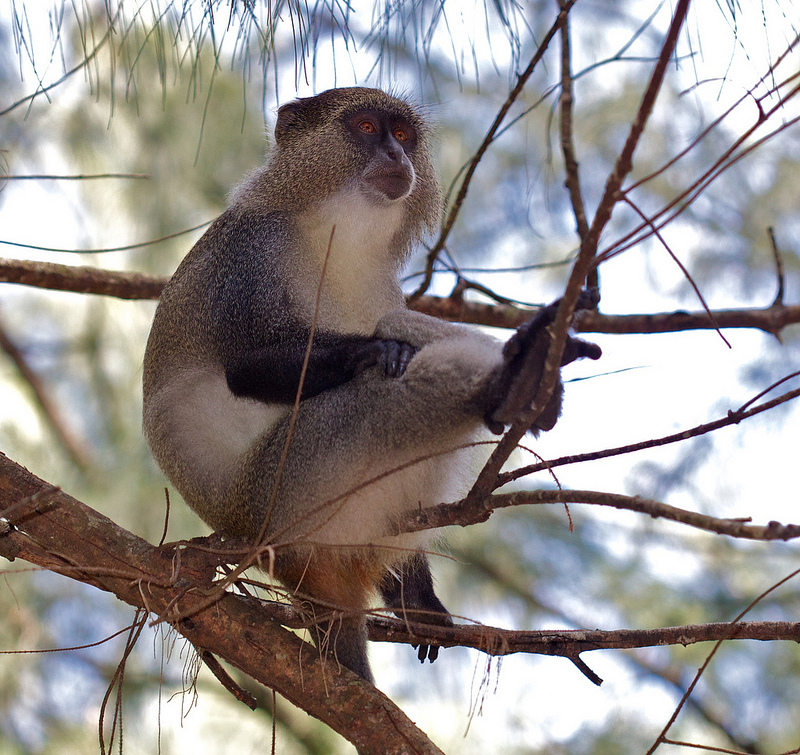I’ll scratch your back if you scratch mine
By Jennifer Seitz
It’s hard to be a wild animal. As if it wasn’t enough that their habitats are threatened and they are challenged by climate change, they are also besieged by humans equipped with cameras and spyglasses to watch their every little twitch.
“Enough with that!,” the Samango monkeys (Cercopithecus albogularis) in South Africa may have thought. ‘If you’re hanging out in our place, we might as well put you to good use and make you our bodyguards!’
Monkeys opting for a human security detail? Well, this is what a new scientific study published in the magazine Behavioral Ecology suggests. According to the study the monkeys use field researchers as human shields against predators. The researchers, headed by Katarzyna Nowak from Durham University have shown in an experiment that the monkeys felt much safer and stayed longer at their feeding sites when people were around.
The furry fellows are not only eating longer in the company of human onlookers, it has also made them change their snack locations. Like most of their colleagues Samango monkeys gobble up their food up in the trees where they are safe from ground-based predators. While observing trees, which had been prepared with feed buckets at different heights the researchers discovered that the monkeys enjoyed their meals closer to the ground than usual, because they seemed to feel even safer in the presence of the researchers.
Quite clever these little fur balls!
But Nowak and her team raised another serious point well beyond their clever monkeys. How accurate can behavioral studies with animals actually be when the mere presence of the researchers is enough to change their behavior
Who knows what’s going on in the forest when nobody is watching?!







